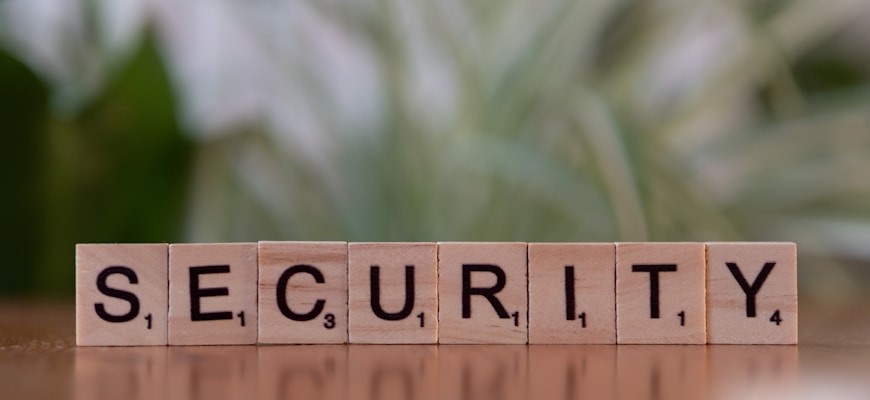- Understanding Tokenization: A New Frontier in Real Estate Investment
- Key Risks in Tokenized Properties and How to Mitigate Them
- Implementing Robust Cybersecurity Protocols for Your Digital Assets
- The Role of Smart Contracts in Ensuring Transaction Security
- Best Practices for Due Diligence in Tokenized Real Estate Ventures
- Navigating Regulatory Challenges: Compliance Strategies for Investors
Understanding Tokenization: A New Frontier in Real Estate Investment
Tokenization represents a transformative shift in real estate investment, leveraging blockchain technology to enhance liquidity and accessibility. By converting real estate assets into digital tokens, investors can now own fractional shares of properties, thereby diversifying their portfolios and mitigating risks associated with traditional real estate investments.
The process of tokenization allows for easier transfer of ownership, reduced transaction costs, and increased transparency in property transactions. This innovative approach not only democratizes access to real estate investment but also opens new avenues for investors who may have previously been excluded from the market due to high entry costs.
- Increased Liquidity: Tokenization offers enhanced liquidity compared to conventional real estate investments, making it easier for investors to buy and sell their shares.
- Lower Barriers to Entry: By enabling fractional ownership, tokenization allows more individuals to participate in real estate investment, regardless of their financial means.
- Enhanced Transparency: Blockchain technology ensures that all transactions are recorded and traceable, fostering trust among investors.
- Improved Security: The use of smart contracts in tokenized properties enhances security and reduces the risk of fraud.
Understanding the implications of tokenization in real estate investment is crucial for investors looking to navigate this new landscape. As more properties become tokenized, the potential for innovation in investment strategies continues to grow. Investors must stay informed about the evolving regulatory environment and the technological advancements that accompany this shift.
In conclusion, tokenization is redefining real estate investment by making it more accessible and secure. As this trend continues to gain momentum, understanding the principles of tokenization will be essential for anyone looking to protect their investments in the ever-changing market.
Key Risks in Tokenized Properties and How to Mitigate Them
Investing in tokenized properties presents unique opportunities, but it also carries inherent risks that must be carefully considered. Understanding these risks is crucial for any investor looking to safeguard their financial interests in the evolving real estate landscape. Key risks associated with tokenized properties include market volatility, regulatory uncertainty, and security vulnerabilities.
- Market Volatility: The value of tokenized properties can fluctuate significantly due to market dynamics, affecting overall investment returns. Investors should stay informed about market trends and economic indicators that influence property values.
- Regulatory Uncertainty: The legal framework governing tokenized assets is still developing, which may create risks related to compliance and potential changes in regulations. Engaging with legal experts can provide clarity and guidance on navigating these complexities.
- Security Vulnerabilities: Tokenized properties are prone to cyber threats and hacking attempts. Implementing robust cybersecurity measures, such as multi-factor authentication and encryption, is essential to protect digital assets from unauthorized access.
- Lack of Liquidity: While tokenization offers the potential for fractional ownership, the market for selling tokens may not always be active. Investors should consider the liquidity of their investments and the potential challenges in divesting.
- Technology Risks: Reliance on blockchain technology introduces risks related to smart contract failures or technological glitches. Thoroughly vetting the technology and platform used for tokenization can mitigate these risks.
To effectively mitigate these risks, investors should adopt a proactive approach. Diversifying investments across multiple tokenized properties can reduce exposure to market fluctuations, while continuous monitoring of regulatory developments ensures compliance. Additionally, leveraging advanced cybersecurity practices and conducting regular audits of digital assets can enhance security measures.
In conclusion, while tokenized properties offer innovative investment opportunities, understanding and managing the associated risks is essential. By taking strategic steps to mitigate these risks, investors can protect their investments and thrive in the tokenized real estate market.
Implementing Robust Cybersecurity Protocols for Your Digital Assets
In the rapidly evolving landscape of digital assets, implementing robust cybersecurity protocols is crucial for ensuring the protection of tokenized properties. Cybersecurity measures not only safeguard investments but also build trust among investors and stakeholders. A multi-faceted approach is essential for maximizing security and minimizing risks associated with cyber threats.
- Data Encryption: Encrypting sensitive information protects it from unauthorized access. Utilizing advanced encryption standards ensures that data related to tokenized properties remains confidential and secure.
- Regular Security Audits: Conducting regular security audits helps identify vulnerabilities in the system. These audits should assess the effectiveness of current cybersecurity measures and recommend improvements.
- Access Control: Implementing strict access controls ensures that only authorized personnel can access critical systems. Utilizing multi-factor authentication adds an additional layer of security.
- Incident Response Plan: Developing a comprehensive incident response plan prepares the organization for potential security breaches. This plan should outline procedures for identifying, responding to, and recovering from cyber incidents.
- Continuous Monitoring: Employing continuous monitoring tools allows for real-time detection of suspicious activities. Automated alerts can help in quickly addressing any potential threats to tokenized assets.
- Employee Training: Regular training sessions for employees on cybersecurity best practices are essential. Educating staff about potential threats and safe online behavior significantly reduces the risk of human error.
By implementing these robust cybersecurity protocols, organizations can better protect their investments in tokenized properties. A proactive approach to cybersecurity not only mitigates risks but also enhances the overall integrity of the digital asset ecosystem. Ensuring that security measures are regularly updated and aligned with industry standards is vital for sustaining long-term security and investor confidence.
The Role of Smart Contracts in Ensuring Transaction Security
Smart contracts play a crucial role in enhancing transaction security within the realm of tokenized properties. These self-executing contracts, built on blockchain technology, automate and enforce agreements without the need for intermediaries. By eliminating the reliance on third parties, smart contracts significantly reduce the risk of fraud and errors, ensuring that all terms are executed as specified.
One of the primary advantages of utilizing smart contracts in tokenized real estate is their transparency. Each transaction is recorded on a public ledger, providing an immutable record that can be accessed and verified by all parties involved. This transparency fosters trust among investors, as it ensures that all actions and agreements are visible and traceable.
Additionally, smart contracts enhance security through their inherent encryption features. Sensitive data, such as ownership details and transaction history, is securely encrypted, protecting it from unauthorized access. This level of security is paramount in safeguarding investments in tokenized properties.
- Automated Execution: Smart contracts automatically execute transactions once predefined conditions are met, minimizing the potential for human error.
- Cost Efficiency: By reducing the need for intermediaries, smart contracts lower transaction costs, making investments in tokenized properties more accessible.
- Dispute Resolution: In the event of a disagreement, smart contracts can provide clear evidence of what was agreed upon, facilitating quicker resolutions.
Furthermore, the programmability of smart contracts allows for customized terms tailored to the specific needs of investors. This flexibility enables the creation of unique security measures, such as escrow arrangements or milestone-based releases of funds, enhancing the overall security framework surrounding tokenized assets.
In summary, smart contracts are essential for ensuring transaction security in the tokenized property market. Their automation, transparency, and encryption capabilities significantly mitigate risks associated with investments, providing investors with confidence in their transactions. As the landscape of real estate continues to evolve, the adoption of smart contracts will undoubtedly play a pivotal role in shaping secure investment practices.
Best Practices for Due Diligence in Tokenized Real Estate Ventures
Engaging in tokenized real estate ventures requires meticulous due diligence to safeguard investments. Investors must assess various factors that contribute to the success and security of their investments in tokenized properties.
- Legal Compliance: Verify that the tokenized real estate project adheres to local regulations and legal frameworks. This includes understanding property rights and ensuring that all necessary licenses and permits are in place.
- Project Team Evaluation: Conduct thorough research on the team behind the tokenized property venture. Review their track record, experience in real estate, and expertise in blockchain technology to ensure they are capable of executing the project successfully.
- Investment Structure Analysis: Examine the structure of the tokenized investment. Understand how the tokens represent ownership and the rights associated with them, including dividend distributions and voting rights.
- Market Research: Perform comprehensive market analysis to gauge the potential value of the tokenized property. Factors such as location, market demand, and economic conditions should be considered to predict future appreciation.
- Technology Assessment: Assess the underlying blockchain technology used for the tokenization process. Ensure it is secure, scalable, and has been audited to prevent vulnerabilities that could compromise investment safety.
- Liquidity Considerations: Evaluate the liquidity options available for the tokenized real estate investment. Understand the exit strategies and how easily tokens can be bought or sold in the market.
- Transparency and Reporting: Look for projects that offer transparent reporting and regular updates on property performance. Transparency builds trust and confidence in the management of tokenized assets.
Implementing these best practices for due diligence in tokenized real estate ventures is crucial for protecting investments. By thoroughly assessing legal compliance, project teams, investment structures, market viability, technology, liquidity, and transparency, investors can enhance their security measures and minimize risks associated with tokenized properties.
Navigating Regulatory Challenges: Compliance Strategies for Investors
Investors venturing into the realm of tokenized properties must navigate a complex landscape of regulatory challenges. Understanding compliance strategies becomes crucial for safeguarding investments. The regulatory framework governing tokenized assets varies significantly across jurisdictions, making it essential for investors to stay informed about local laws and regulations. Ensuring compliance not only protects investments but also enhances the credibility of the tokenized property market.
- Research Local Regulations: Investors should conduct thorough research on the legal environment surrounding tokenized properties in their jurisdiction. This includes understanding securities laws, tax implications, and property rights.
- Engage Legal Expertise: Collaborating with legal professionals who specialize in blockchain and real estate law can provide invaluable insights into navigating compliance requirements.
- Implement Transparency Measures: Maintaining transparency in transactions fosters trust and can mitigate potential regulatory scrutiny. Utilizing blockchain’s inherent capabilities for immutability and traceability can enhance transparency.
- Stay Updated: Regulatory landscapes are constantly evolving. Investors should stay updated on changes in laws and regulations that may impact tokenized properties.
- Develop a Compliance Framework: Establishing a robust compliance framework tailored to the specifics of tokenized properties can help in systematically addressing regulatory challenges.
Investors in tokenized properties must prioritize compliance to protect their investments. By implementing effective compliance strategies, they can not only safeguard their assets but also contribute to establishing a more secure and reliable market for tokenized real estate.










I never realized the importance of security measures for tokenized properties until I read this article. It’s eye-opening to see how vulnerable these assets can be without proper protection. I’m definitely going to implement some of the tips mentioned here to safeguard my investments.
As someone new to the world of tokenized properties, this article was incredibly informative. I appreciate the detailed explanations of security measures and how they can protect my investments. Can you recommend any specific security software or tools to use for beginners?
I’ve been in the real estate industry for years, but tokenization is a whole new ball game. This article shed light on the security aspects that I hadn’t even considered before. It’s crucial for anyone dealing with tokenized properties to stay one step ahead of potential threats.